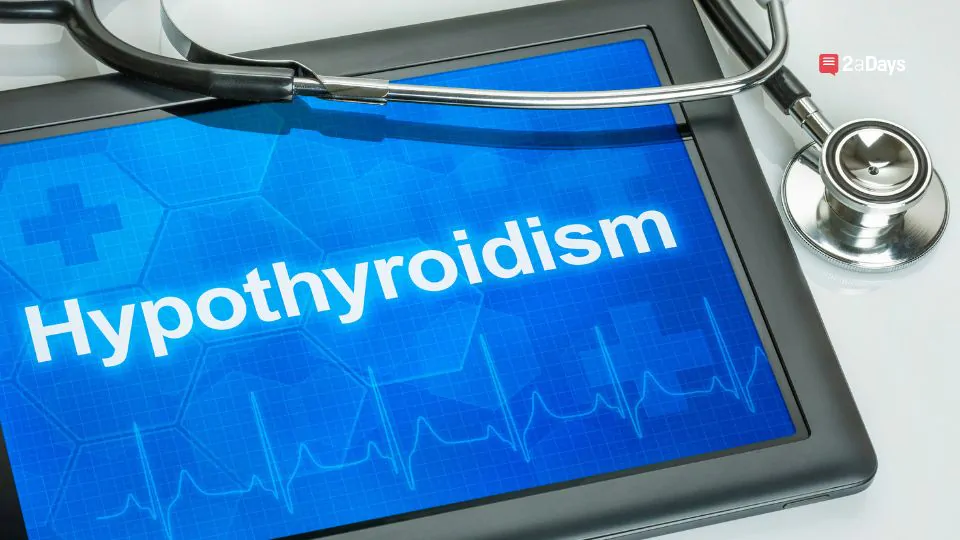When most people think of an athlete's worst nightmare, they think of failure, getting benched, or missing a game-winning shot. But I can tell you from personal experience that hypothyroidism can be an athlete's true worst-case scenario because left unchecked, it can contribute to all of these things and much more.
I'm a former D1 athlete who was diagnosed with hypothyroidism during my senior year of college. Years later, I would learn that I was prescribed the wrong medication for my specific needs, but at the time, I thought the diagnosis and my medication would help me. I was wrong. My performances and mood suffered during my final college season and it would take me another five years to find the correct diagnosis, medication, and dosage to manage my symptoms.
Don't make the same mistake I did. If you are an athlete curious about hypothyroidism, read on for more information and tips that can help you out. Your entire body will thank you!
What is hypothyroidism?
Hypothyroidism is a disease that affects a small gland in your neck called your thyroid. When hypothyroidism strikes, your thyroid doesn't produce enough thyroid hormone, which can wreak havoc on your entire system. Hyperthyroidism is the opposite: when your thyroid produces too much thyroid hormone, and can have different, but similarly damaging effects.
What causes hypothyroidism?
Sometimes, an autoimmune disease like Hashimoto's thyroiditis can cause hypothyroidism, as can surgical removal of the thyroid. However, the causes of hypothyroidism not caused by these things is unknown. Although stress and diet don't cause hypothyroidism, they can exacerbate symptoms and make it worse.
What are warning signs of hypothyroidism in athletes?
Fatigue
Patients with hypothyroidism typically experience extreme fatigue. When my hypothyroidism was at its worst, it was hard to get out of bed. There were days where I would have to pick one or two activities (class or grocery shopping or laundry or practice) and then rest for the remainder of the day because I was so tired. Caffeine didn't help—I simply had to lay in bed until my energy was restored (and I never felt truly refreshed).
In athletes, fatigue can manifest in decreased athletic performance. If you're yawning through practice and aren't performing at your best, your thyroid may be to blame.
Related: 3 Ways College Athletes Can Avoid Burnout
Disrupted Sleep
Compounding fatigue for many hypothyroid patients is the fact that when your thyroid isn't functioning optimally, it can seriously mess with your sleep patterns. And even if you do get a full eight hours (which is a luxury for busy college athletes), it likely won't be deep, restorative sleep.
The importance of sleep for college athletes cannot be overstated. In addition to fighting off fatigue and improving performance and overall health, good sleep is vital to immunity and recovery. So if you're getting sick more frequently, have a nagging cold, or are dealing with a stubborn injury, it may be because you aren't getting restorative sleep. And that can be linked to your thyroid as well.
Related: 5 Ways College Athletes Can Improve Their Sleep Schedule For Peak Performance
Weight Gain
Most college athletes are immune to the Freshman Fifteen, but hypothyroidism can complicate your efforts to maintain the weight that's healthiest for you. And I'm not talking about muscle gain, which many athletes strive for. This was hormonal weight gain that slowed me down. For me, the weight came gradually, then very suddenly. I went from gaining a pound or two a year to gaining fifteen pounds in a summer without changing my diet or exercise patterns at all!
Although some forms of weight gain may be a good thing for some athletes depending on sport and personal history, if you're working out like a college athlete and eating the right range of calories for weight loss or maintenance but are still gaining weight, it may not be your fault. It's nearly impossible to lose weight when your hormones are working against you.
Related: The Effects of Muscle Gain on Female Athlete Body Image
What can I do?
Find a doctor who will take your symptoms seriously. When I first approached a trainer about my fatigue and suspected hypothyroidism at the end of my junior year, he brushed me off. I went to see a doctor on my own that summer who gave me the proper diagnosis, but the wrong medication. Then, I went to doctor after doctor who tested me and said I was fine because my thyroid levels were on the low side of normal even though my symptoms were still there.
It took me a long time to find a doctor who would do a full hormone panel and who was willing to prescribe me the proper medication at a higher dosage than usual even though my hormone levels were technically normal. Athletes are taught to listen to their bodies and mine was telling me something was off even if my labs didn't. “Normal” thyroid levels aren't adequate for many high-energy, high-stress athletes and many doctors don't understand this. It is imperative to find a doctor that takes you seriously, especially when it comes to your thyroid.
Hypothyroid treatment usually consists of a little pill you take every day on an empty stomach. Unfortunately, there's no cure outside of surgery and even that is risky. But the medication is simple and easy to swallow and it's more than worth the benefits: improved sleep and energy, a better social life, more stable moods, and overall enhanced well-being. If you're suffering from unexplained fatigue, disrupted sleep, and weight gain, hormone treatment for your thyroid may be your saving grace.
Katie (M.K.) Lever is a former Division 1 athlete and current doctoral candidate at the University of Texas at Austin where she studies NCAA discourse and policy. She is also a freelance sportswriter and creative writer on the side. She is the author of a new book Surviving the Second Tier available on AMAZON. Follow Katie on Twitter and Instagram: @leverfever.
Have an idea for a story or a question you need answered? Want to set up an interview with us? Email us at [email protected]
* Originally published on June 23, 2022, by Katie Lever, Ph. D







